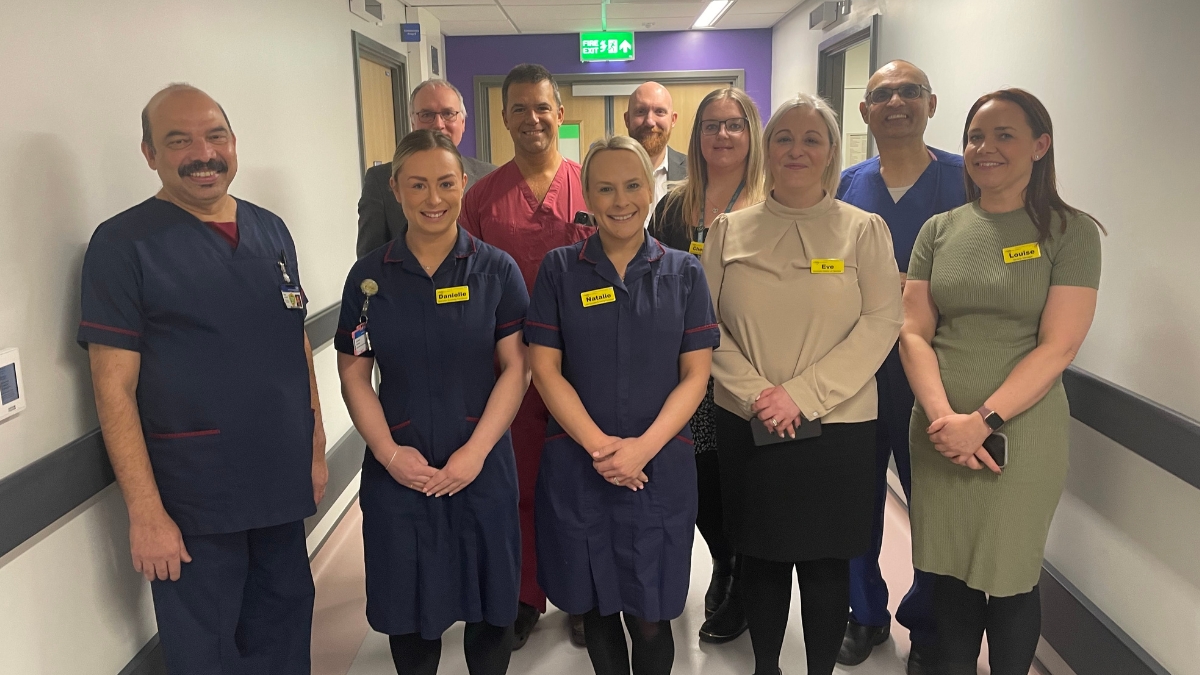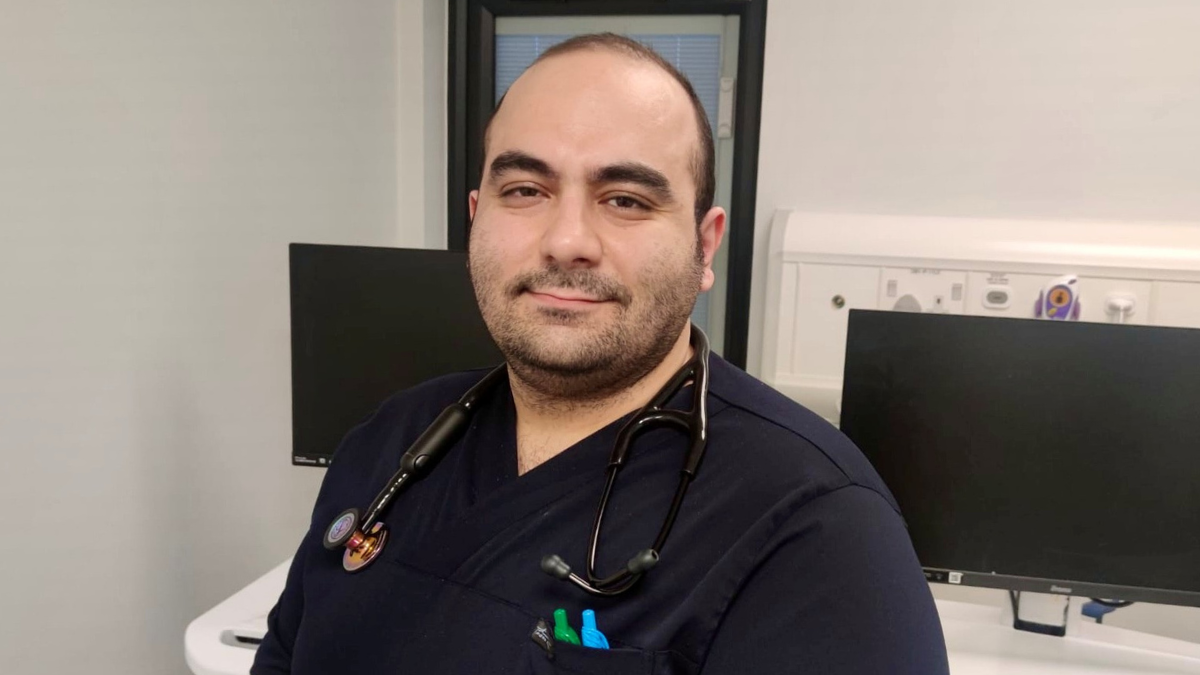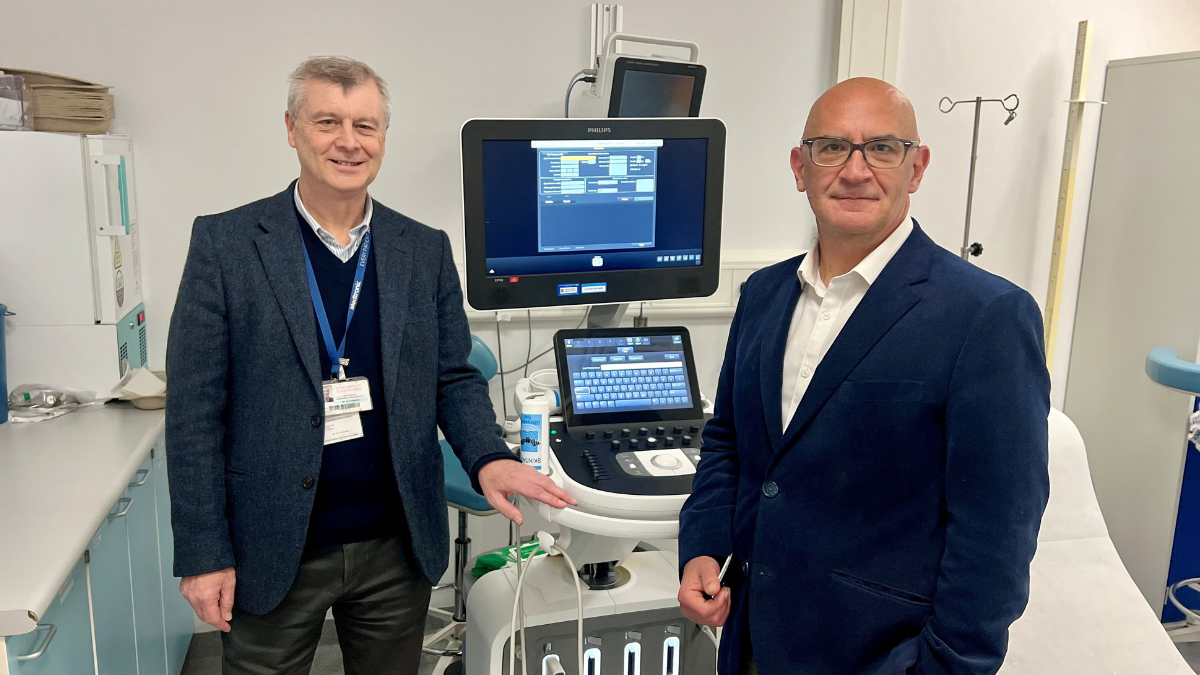Reopening of Bowel Cancer Screening at Heartlands Hospital
Published on 08/04/2025

Heartlands Hospital in Birmingham reopens its Bowel Cancer Screening Programme (BCSP) in a move which will mean patients can be tested closer to home.
This significant milestone comes after the securing of accreditation by the Joint Advisory Group (JAG) of the Royal College of Physicians. The accreditation, which was successfully regained in April 2024 involved extensive efforts, including improvements in patient flow, compliance with mixed-gender screening requirements, and meeting key performance indicators. This achievement ensures that participants can now receive their bowel cancer screening locally, reducing the need for travel to other sites such as Solihull.
Bowel Cancer Screening aims to detect bowel cancer at an early stage before symptoms have a chance to develop. It reduces death from bowel cancer and may also help to prevent bowel cancer through the identification and removal or pre-cancerous polyps or adenomas.
There are around 44,100 new bowel cancer cases in the UK every year. When diagnosed at its earlier stage, survival is much higher than when the disease is diagnosed at a later stage.
The reopening aligns with the NHS’s commitment to tackling health inequalities. Heartlands Hospital serves a population with historically low screening uptake but high rates of bowel cancer detection. By reintroducing local screening, the hospital aims to improve early cancer detection, which is crucial for better treatment outcomes and survival rates.
Mr Sharad Karandikar, Consultant in Colorectal Surgery, said: “This is fantastic news for our local community. We know that travel can be a barrier to participation, and by bringing screening back to Heartlands, we can offer a service across three sites which ensures greater access for our patients, allowing more individuals to undergo screening closer to their homes. This will help to improve early detection rates and ultimately save lives.”
Sixty-two-year-old Annie Masters was the very first patient to be seen by the team at Heartlands Hospital after the re-opening of the service. She said: “I had no idea I was the first person to be screened at Heartlands Hospital until the doctor told me, I felt like a celebrity. The team were absolutely amazing, putting me at ease during what was an emotional and nerve-wracking experience. They explained everything thoroughly, reassured me throughout the procedure, and treated me with such kindness and care.
Annie added: “Thanks to the service reopening at Heartlands Hospital, I was seen much quicker, which helped alleviate my worries. The whole process was seamless and so well-organised. I can't thank them enough for being there for me when I needed it most.”
The re-opening of the Bowel Screening Programme after ten years highlights the efforts by the University Hospitals Birmingham NHS Foundation Trust to enhance accessibility and reduce health inequalities for patients.
Cheryl Entwistle, Bowel Screening Programme Manager, at University Hospitals Birmingham NHS Foundation Trust said: “We understand that every patient’s situation is unique, and we are committed to providing care that meets their individual needs. That’s why we offer both telephone and virtual appointments, providing flexibility for patients who may find it challenging to attend in-person consultations, such as those with mobility difficulties or living in rural areas.
“For those who prefer face-to-face interactions, our in-person consultations remain available across all three sites, ensuring that patient preferences are always respected. Our goal is to make healthcare as accessible and convenient as possible for everyone we serve.”
The hospital is currently finalising capacity arrangements, with screening resuming in March 2025.
In addition, the screening programme will support the NHS national age extension initiative, which will lower the eligible screening age from 54 to 50 years in February 2025. This change is expected to further increase accessibility and encourage more people to take part in screening.


